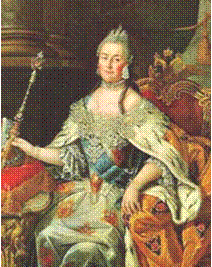

•Domestic reforms
•composed a plan to completely overhaul the legal code. Other measures she instituted promoted education, relaxed the censorship law, and restricted the use of torture.
•Ended Enlightenment ideas after the “Peasant Revolt”
•like Frederick, Catherine’s devotion to Enlightenment ideals only went so far.
